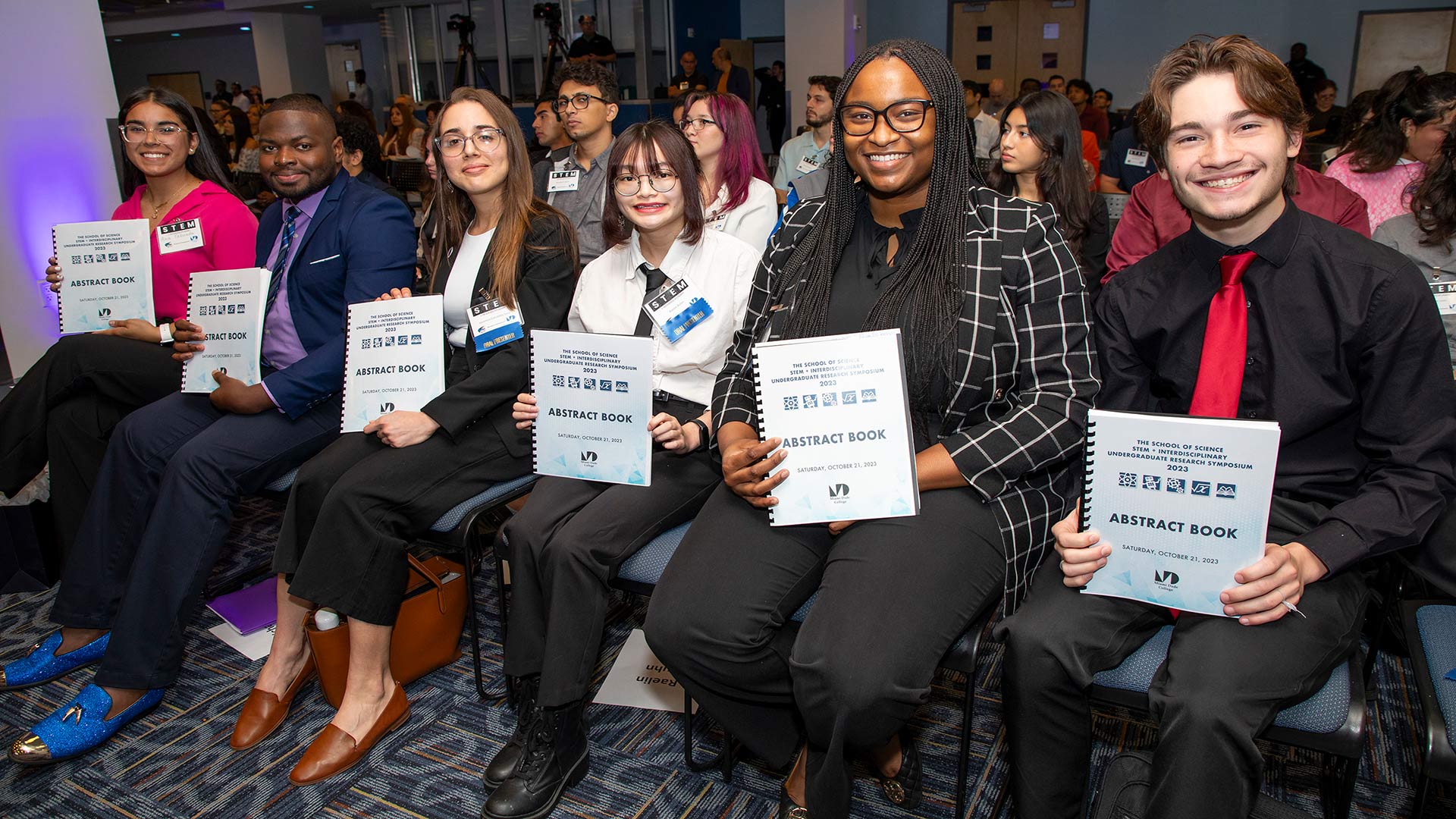Undergraduate Research Gives Students Edge for Their Future
They spent thousands of hours in labs over the summer, doing research on the environment, technology and everyday problems.
Their work culminated in a day-long symposium where they shared their findings with fellow researchers.
But these researchers weren’t professionals or even graduate students — they were Miami Dade College students who took part in the School of Science’s Undergraduate Research Program.
“The experience and opportunities that MDC has provided me will set me apart from other students as I move on to graduate school and my future career,” said geology student Raelin Kuhn, who researched microplastics in waterways.
Kuhn was one of more than 260 students who participated in the STEM+ Interdisciplinary Undergraduate Research Symposium held at MDC’s North Campus. Last year, organizers added humanities and other disciplines to the symposium to showcase all research going on at the College.
Focus on Research
“Research is not simply an academic activity,” said Dr. Malou C. Harrison, MDC executive vice president and provost. “What MDC has been very purposeful about is making sure this research is connected to what students are learning in the classroom.”
Working with mentors, the students covered 117 research topics from Science, Technology, Engineering and Mathematics-related fields including chemical sciences, biological and life sciences, engineering and technology, and mathematics and statistics. They received over $280,000 in grants for their research. Students from other disciplines presented their research as well, including a humanities project comparing Florida and California to see how politics plays a role in history and how it is presented.
“This is not something usually done in the community college setting; this is usually done in the university setting,” said Dr. Pablo Sacasa, dean of the School of Science.
North Campus President Fermin Vasquez said MDC fuels the pipeline for in-demand STEM practitioners by preparing students early on.
“Students walk in the door with the opportunity to get in the lab, which gives them that hands-on experience they need,” he said. “It gives them a chance to see what they can look forward to.”
Supporting STEM Collegewide
MDC has established 10 learning outcomes, six of which students hone through undergraduate research, Harrison said. They include communicating effectively, using analytical skills, problem-solving and describing how natural systems function.
The symposium is one of many ways MDC supports STEM studies. Campuses hold STEM Days, students receive research stipends throughout the year, and they get opportunities to take field trips and work with industry partners.
Biotechnology student Ruth Marius said she is grateful for the opportunities she has been afforded. She has presented her work related to HIV at conferences across the country.
“I am a living testimony that MDC cares for their students,” she said.
– CT
Interested in more stories like this? Visit the MDC publication, College Forum.
